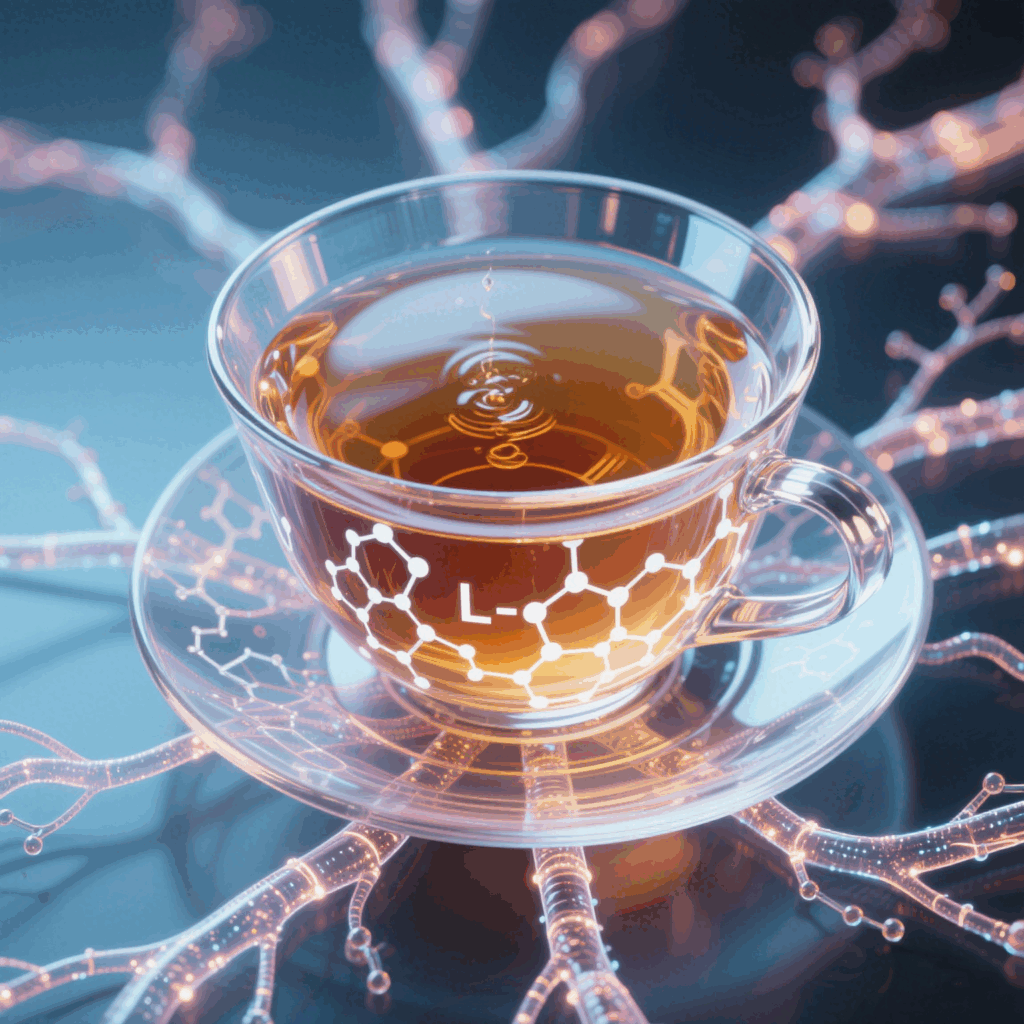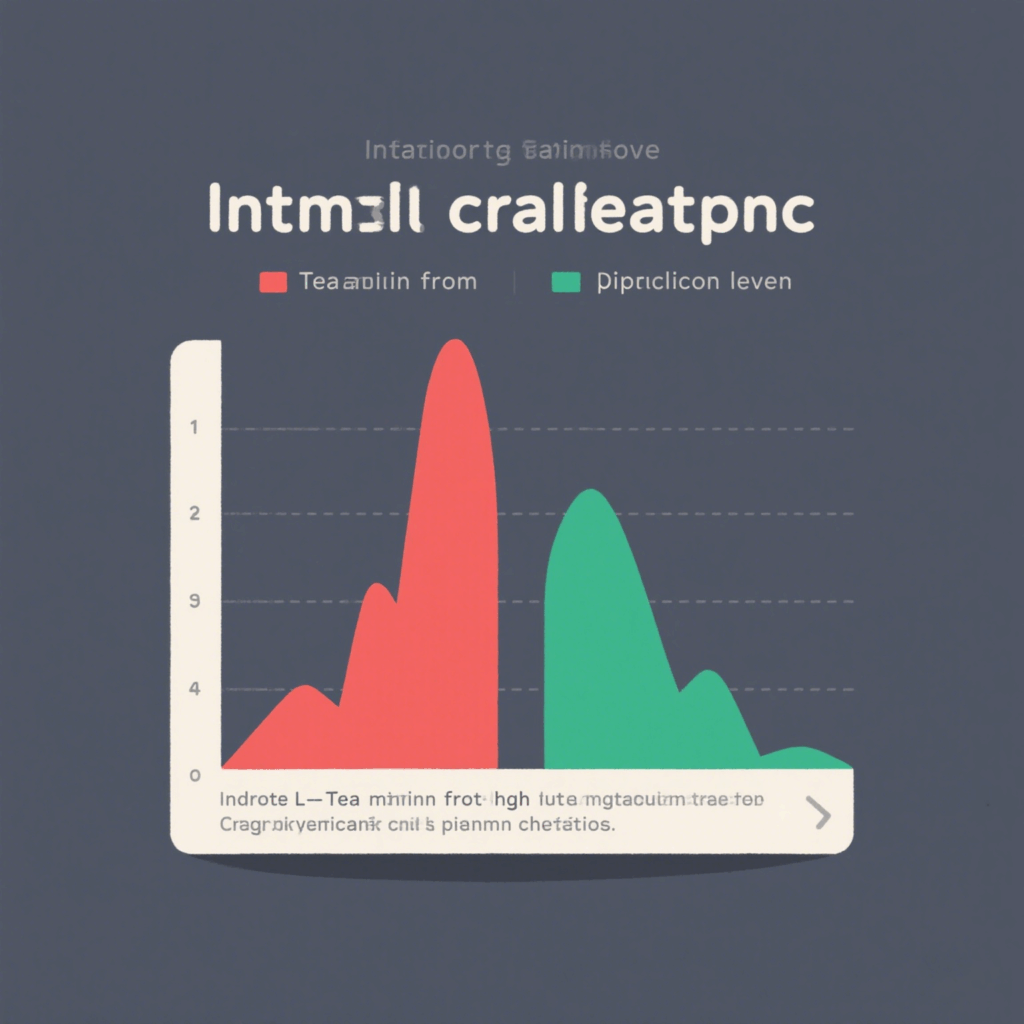L-Theanine 101: More Than a Calming Brew
L-Theanine, a unique amino acid found predominantly in green tea, is nature’s answer to modern stress. Unlike caffeine, it induces relaxed alertness by modulating brain chemistry. Research reveals its dual role: reducing anxiety while sharpening cognitive performance37.

The Neurochemical Symphony of L-Theanine
Alpha Waves & GABA: The Calm-Focus Duo
L-Theanine crosses the blood-brain barrier within 30 minutes, boosting alpha brain waves linked to relaxed focus. Concurrently, it elevates GABA (gamma-aminobutyric acid), an inhibitory neurotransmitter that counters overstimulation. Studies show a 31% increase in GABA levels with 200mg L-Theanine, akin to mild meditation effects35.
Key Mechanisms:
- Glutamate Regulation: Blocks excess glutamate, preventing neuronal excitotoxicity.
- Serotonin & Dopamine Balance: Modulates mood-regulating neurotransmitters without dependency risks5.
- BDNF Activation: Enhances brain-derived neurotrophic factor, supporting neuroplasticity7.
Stress Defense: From Molecules to Mind
Cortisol Reduction & Mitochondrial Support
Under stress, cortisol spikes impair mitochondrial function. L-Theanine suppresses cortisol by 18% in clinical trials, mirroring findings from SIRT3-activating compounds that protect mitochondrial health37. Its antioxidant properties neutralize ROS (reactive oxygen species), preserving cellular energy production.
Case Study: A 2023 trial on healthcare workers showed 100mg/day L-Theanine reduced burnout symptoms by 40% within 4 weeks7.

Beyond Relaxation: Cognitive & Metabolic Perks
Focus, Sleep, and Metabolic Harmony
- L-Theanine + Caffeine Synergy: Boosts attention span and working memory by 15% vs. caffeine alone7.
- Sleep Quality: Increases sleep efficiency by prolonging REM cycles, validated by polysomnography studies5.
- Lipid Metabolism: Activates AMPK pathways, aiding fat oxidation—a mechanism shared with SIRT3 activators like Theacrine3.
The Evolutionary Edge of Tea’s Secret Weapon
Why Humans & Plants Co-Evolved with L-Theanine
L-Theanine synthesis in tea plants parallels human stress adaptation. Phylogenetic studies suggest tea’s L-Theanine production surged 65 million years ago, aligning with mammalian brain evolution. This symbiosis hints at epigenetic co-regulation between plant defenses and human neurochemistry8.
Future Frontiers: From Supplements to Smart Drugs
Bioengineering & Personalized Wellness
- CRISPR-Enhanced Tea: Projects aim to amplify L-Theanine content by editing GAME genes (steroidal alkaloid regulators)8.
- Nootropic Stacks: Combining L-Theanine with adaptogens like Rhodiola shows 2x stress resilience in preclinical models7.
- Gut-Brain Delivery: Nano-encapsulation techniques improve bioavailability, targeting gut microbiota for sustained release3.
